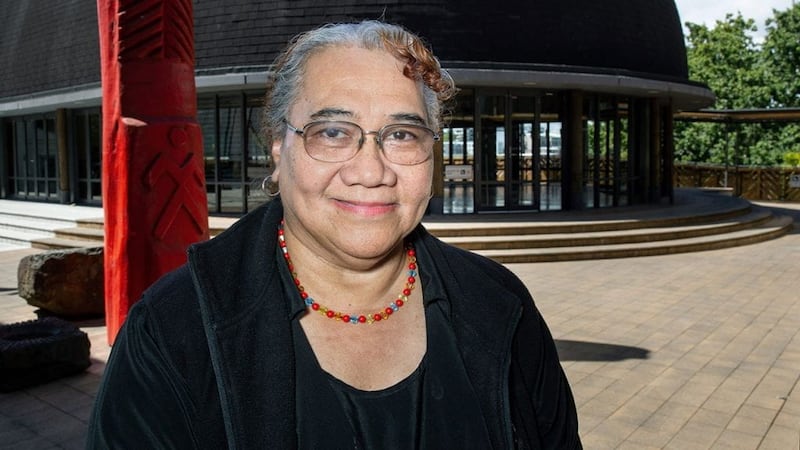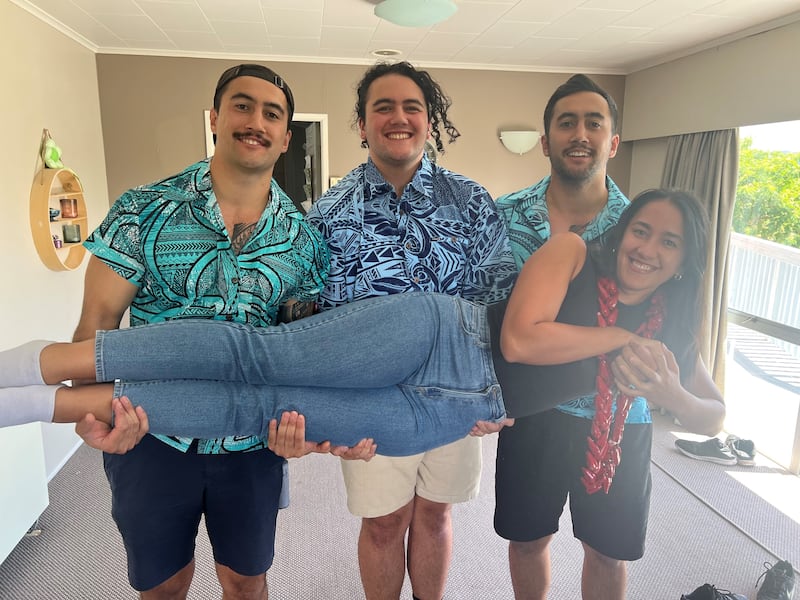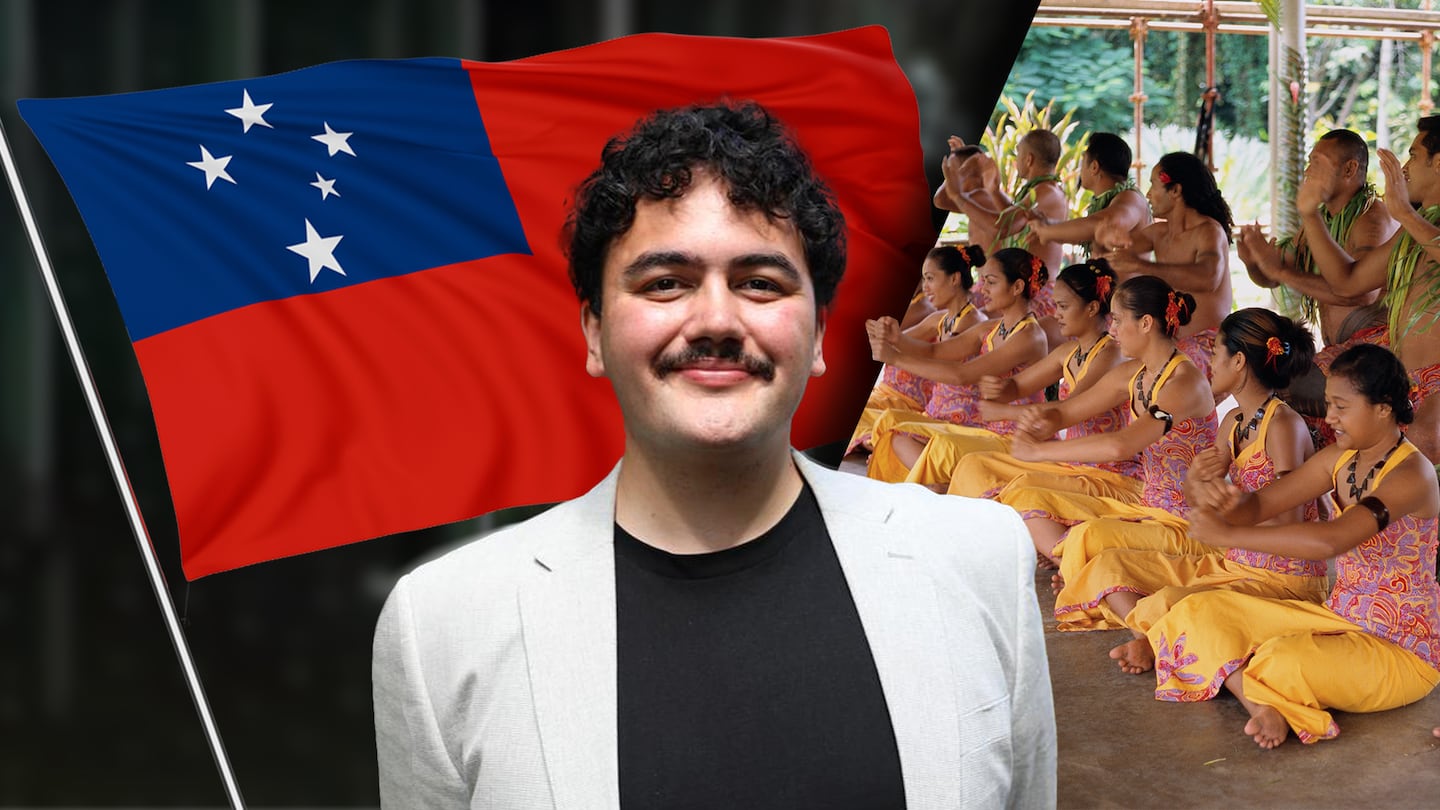Opinion: It is once again Samoan Language Week, it’s a time where, along with my palagi friends, I learn a bit more Gagana Sāmoa (Samoan Language).
Over the past year, I have been doing better in trying to learn more about my culture and language. I’m still far away from where I want to be, but it is a starting point in my journey.
And this all started due to me learning more te reo Māori and te ao Māori when I began working at Whakaata Māori as a Digital Producer for the Te Ao Māori News website a little over a year ago.
Working alongside so many people who’ve grown up with, or even learned later in life, their culture and language has been incredibly inspiring. Even more so, being beside others my age who are just beginning their journey. It’s beautiful and powerful to see Māori culture not just survive, but thrive, despite the challenges imposed by past and present governments.
But, it made me think - why can’t I do this too?
‘Allergic to speaking the language’
I think Samoan director Miki Magasiva’s son said it best after the premiere of the amazing movie Tinā when he was giving a huge mihi to his father. He jokingly said, ‘as New Zealand-born Samoan’s you know we are allergic to speaking the language.’
Although it is a joke, it holds a lot of truth behind it. For me personally and many of my other Samoan whānau and friends, we felt if our reo wasn’t to a high standard, why should we speak it, if we were going to be laughed at for trying?
From my Samoan side, I inherited big feet, a big appetite, a loud laugh, and as a kid, a body that looked like I would be a forward for the First XV. But language wasn’t one of the things passed down.
But I’m not the only one who didn’t get the gift of our mother tongue.
In the 2023 Census, it showed there were 213,069 Samoan people in Aotearoa, but only 48.4 percent can speak the language. It is a huge shift, as ten years previously it was 55.6 percent.
For my ‘āiga (whānau) my grandparents and many of my father’s siblings first language was Samoan, but when it came to my cousins and I, we were never taught the language our parents grew up around.
Speaking with the University of Auckland’s linguist Dr Melenaite Taumoefolau about why Samoan communities in New Zealand have lost their gagana, she stated, unlike our Māori counterparts, where it was a forced language shift, she said the Samoan community, like the Tongan community, was a voluntary language shift.

“It kind of depends on whether parents and caregivers can speak Samoan, and if they can speak Samoan, then they have the tool to provide transmission of the language. But they don’t because they value English much more.
“They are willing to give up their traditional language and use another language, [like] using English at home.”
She did clarify that colonisation was an influence on English being a priority in Pasifika households, but it isn’t the only driving factor.
“Our communities probably need to know that you can have both [languages],” said Taumoefolau.
For me, family functions on my Samoan side were all in English, with only the elders really speaking the language among each other.
But, being surrounded by so many Māori people in my life who contribute to the revitalisation of their culture and reo helped give me that extra push to pursue my journey into my own culture.
Last year, I signed up for Gagana Sāmoa classes at the Centre of Pacific Languages. At the beginning, I was asked by my faiā’oga (teacher) why I joined.
In response, I said: “I want to reconnect with my culture, and to also beat the plastic allegations.”
Both statements are true.
Without my Māori friends inside and outside of work, I know I wouldn’t be on my way to taking off my plastic covering.
Before wrapping this story up, I would like to clarify that I’m not a “humble Samoan,” but rather an afakasi who grew up in South Auckland and Rotorua. I’m learning Gagana Sāmoa not to become Samoan, but to reconnect. I already am Samoan. It’s in my blood. I may be an afakasi born in New Zealand, but that doesn’t make me any less Samoan.
lo’u ‘āiga

I’m proud to say my whakapapa (family ties) in my Gagana Sāmoa.
‘O le tamā o lo’u tamā o Siapouli Tamilio Pilo Perse mai Magagi Tai.
‘O le tinā o lo’u tamā o Faasu Purcell Perese mai Sasina.
‘O lo’u tamā o Joseph Perese.
‘O le tamā o lo’u tinā o Desmond Hales mai Taipuha.
‘O le tinā o lo’u tinā o Renee Hales mai Taipuha.
‘o lo’u tinā o Louise Perese.
‘E to’a tasi lo’u tuafafina ‘o Marie Perese.
‘E to’a lua o’u uso ‘o Matthew Perese ma ‘o Hayden Perese.
‘O lo’u igoa o Daniel Perese.




